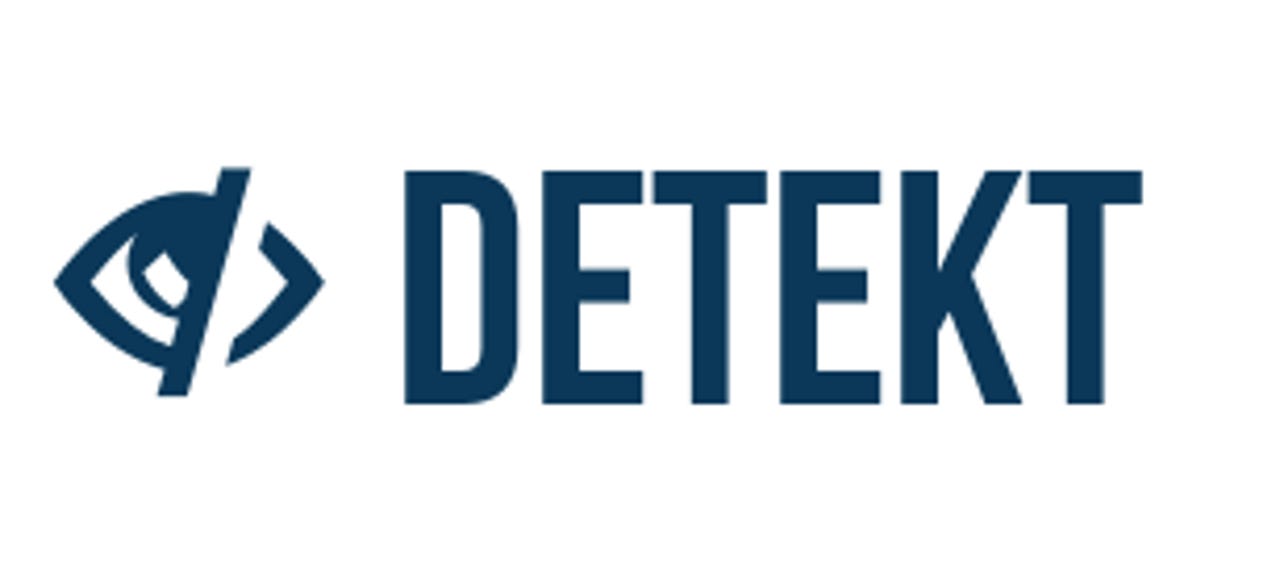Amnesty's Detekt tool wants to help you thwart government spying


It is an accepted part of life that we are often under surveillance. However, the recent disclosures of former NSA contractor Edward Snowden shed new and stomach-churning light on just how far some government agencies are willing to go to keep track of citizens — innocent or otherwise.
This week, a bill to curb the spying powers of the main culprit, the US National Security Agency (NSA), failed a crucial vote in the Senate.
While FBI Director James Comey believes mobile encryption will lead us to "a very dark place," this hasn't stopped companies reacting to such widespread spying — whether in the name of national security or not. Apple and Google have responded to the NSA disclosures by pledging mobile device encryption by default — which will hand the keys over to the user. This, in short, means the companies cannot decrypt user data even if a court order demands it.
In addition to large technology firms implementing new security solutions, the disclosures have acted as a catalyst for a range of "surveillance-proof" and anonymizing services. Detekt, a new tool launched by human rights group Amnesty International, is the latest weapon that can be used by the general public to hamper government spying.
The free tool, developed through a partnership between Amnesty, Privacy International, Digitale Gesellschaft and the Electronic Frontier Foundation (EFF), can scan your computer for traces of "known surveillance spyware used by governments to target and monitor human rights defenders and journalists around the world," according to the organizations.
Marek Marczynski, head of military, security and police at Amnesty, said the software "represents a strike back against governments who are using information obtained through surveillance to arbitrarily detain, illegally arrest and even torture human rights defenders and journalists."
Developed by security researchers and used in Citizen Lab's investigations into government use of spyware against human rights defenders, journalists and activists, it is hoped that by alerting users of the spyware, precautions will then be set to prevent recurrence.
For example, the tool is able to detect the presence of FinSpy, surveillance spyware developed by German firm FinFisher. The FinSpy software is able to monitor Skype conversations, take screenshots and photos using a device's camera, record microphone use, emails, voice-over-IP and extract files from hard discs.
"The increasing use of intrusive surveillance has had a dramatic impact on the right to privacy and other human rights like freedom of association and freedom of expression," Amnesty says.
"The latest technologies enable governments to track, monitor and spy on people’s activities like never before. Through the use of these technologies, governments can read private correspondence and even turn on the camera and microphone of a computer without its owner knowing it.
By increasing people's awareness of these issues, we hope they will be able to take practical steps to protect themselves."
While Detekt can make users aware of the presence of such spyware, it is by no means foolproof, and cannot detect all types. It is also likely that companies will react fast to update software in order to prevent detection, and so the human rights group is encouraging developers to contribute to the project.
Amnesty says:
Indiscriminate mass surveillance — the widespread and bulk interception of communication data that is not targeted or based on reasonable suspicion — is never justifiable. It interferes with a range of human rights, particularly the rights to privacy and freedom of expression.
The surveillance industry is estimated to be worth roughly $5 billion a year, with profits growing 20 percent per annum.
Read on: In the world of security
- Apple Pay rival CurrentC hacked
- FBI Director: Mobile encryption could lead us to 'very dark place'
- FBI chief compares Chinese hackers to 'drunk burglars'
- Hackers infiltrate White House network
- Teen hackers charged with stealing $100 million in Army, Microsoft tech
- Enterprise network security takes backseat to speed: McAfee